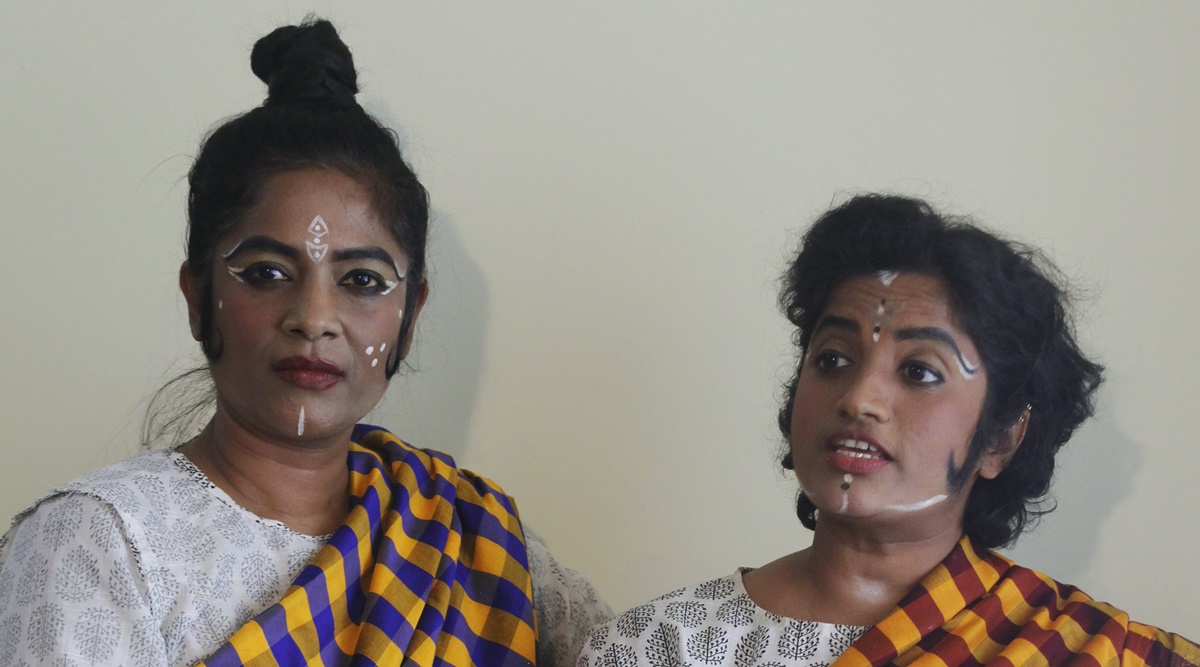 Using forms such as Yakshagana, Hari Katha and Yellama Nataka as well as Hindustani and Carnatic music, the play questions “the absence of female voices that could have provided a deeper insight into the life of Desdemona
Using forms such as Yakshagana, Hari Katha and Yellama Nataka as well as Hindustani and Carnatic music, the play questions “the absence of female voices that could have provided a deeper insight into the life of Desdemona Once again, as the lights dim, the voice of Girish Karnad will tell audiences at Rangashankara in Bengaluru, “Please switch off your mobile phones so that there is no disturbance during the performance.” This is among the few familiar elements with which a new play, Desdemona Rupakam, will open on April 10. The title is from William Shakespeare’s Othello, in which a murdered Desdemona does not name her killer. The play has been created during the pandemic by a group of theatre performers bent on searching for the missing voices of silent women in classics and mythology.
Desdemona Rupakam represents the kind of work that is emerging in a world unhinged by the pandemic. It has a small cast of two — MD Pallavi and Bindumalini Narayanaswamy— and its length can be adjusted according to the requirements of the performance venue. Moreover, though there are several shows lined up in Bengaluru and Mumbai, director Abhishek Majumdar is quite certain that some will be postponed or cancelled due to COVID-19 clampdowns by governments. “I also think that many unexpected shows will happen. We could be performing in spaces and contexts that we couldn’t have imagined earlier,” he adds. A lot of his projects in different parts of the world, from London and New York to Bengaluru and Abu Dhabi, have been pushed back by lockdowns.
Using forms such as Yakshagana, Hari Katha and Yellama Nataka as well as Hindustani and Carnatic music, the play questions “the absence of female voices that could have provided a deeper insight into the life of Desdemona, thereby challenging the erasure of any resistance from Desdemona as she is killed by Othello”. In its exploration of the traditional Indian myth, Desdemona Rupakam highlights the “differences of register and agency that women have had in important narratives about them”.
 Director Abhishek Majumdar
Director Abhishek Majumdar
While last year brought theatre practitioners such as Majumdar out to provide food security to communities affected by the pandemic, it also saw a great urge to make work — write, compose music or create for the online medium. “The greater questions of the civilisation have not disappeared. It cannot be that we look back at this time and say that we did not ask philosophical or political questions while COVID-19 was raging. During the pandemic, women have been affected very adversely compared to the men. There is a major feminist reading of the pandemic, which will rely on what were the missing women’s voices in employment and domestic spheres, among others. Though, very clearly and without exception, we have seen that women leaders have done far better than their male counterparts across the world in managing the pandemic,” says Majumdar.
He had come up with the central proposition: “Is anybody really alone in their bedroom?” It led to other ideas he was curious about, such as “What happens in Desdemona’s bedroom and why does she have so little to say? What would happen if she had more to say?” Every day, the performers and writers — Pallavi, Narayanaswamy, Veena Appiah, Irawati Karnik, Majumdar and sound designer, Nikhil Nagaraj— would confront the notion that the bedroom was a private space, and show how, in mythology and other forms of literature, the couple was not alone and many voices of the world shaped discourses in the innermost room.
The play, produced by Nalanda Arts Studio, will be staged at Rangashankara in Bengaluru on April 10 and 11.
For more lifestyle news, follow us: Twitter: lifestyle_ie | Facebook: IE Lifestyle | Instagram: ie_lifestyle
- The Indian Express website has been rated GREEN for its credibility and trustworthiness by Newsguard, a global service that rates news sources for their journalistic standards.

